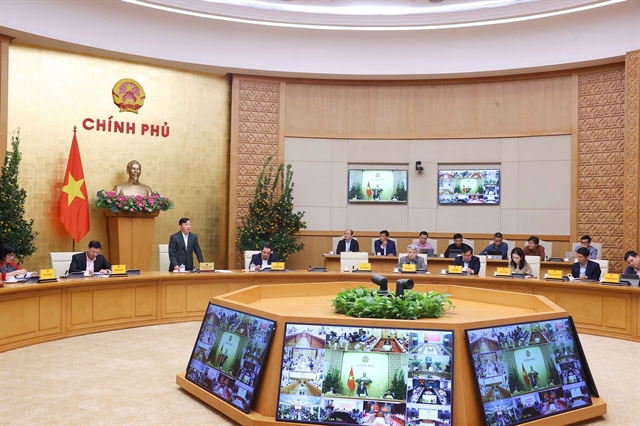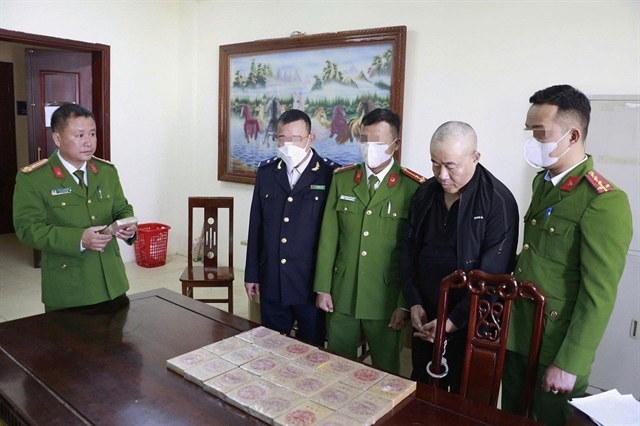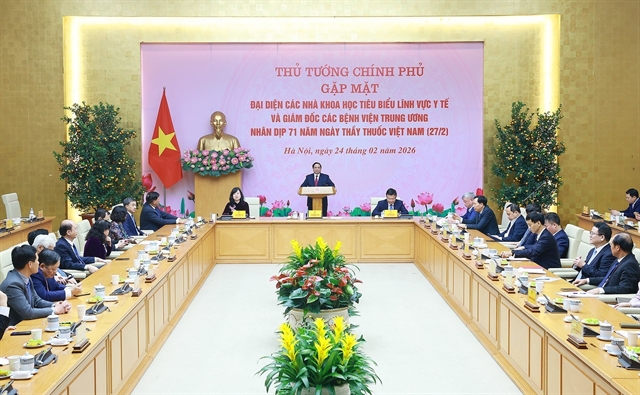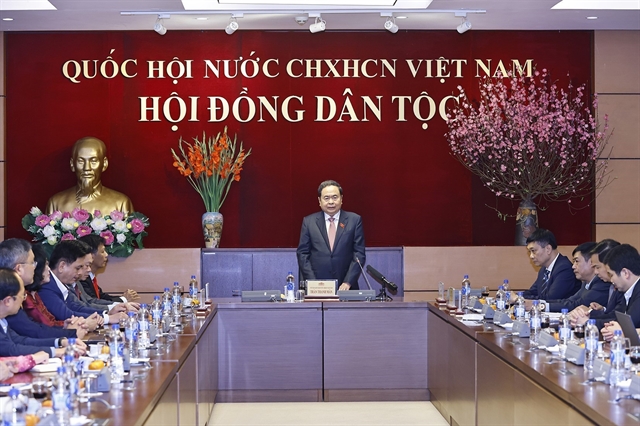 Society
Society

 |
| An elderly in southern Tây Ninh Province has his health check-up covered by the State's health insurance. — VNA/VNS Photo |
MEKONG DELTA — Việt Nam is pushing to transform its healthcare system through a stronger emphasis on grassroots preventive care and a value-based investment model, aiming for sustainable breakthroughs in public health.
Professor Dr Tạ Văn Trầm, director of Tiền Giang General Hospital, made the call while speaking to Vietnam News Agency on draft documents for the 14th National Party Congress, particularly those related to public healthcare policies.
Trầm, who is also principal of the School of Medicine and Pharmacy at Trà Vinh University, noted that the past tenure had brought important achievements: effective disease control, mastery of advanced medical techniques, and health insurance-based services that boosted patient satisfaction.
The private sector has expanded, while health insurance coverage rose from 90.9 per cent in 2020 to 95.2 per cent in 2025. Average life expectancy reached 74.8 years, with around 67 years of healthy living, reflecting the health system’s overall effectiveness.
Despite these gains, Trầm highlighted persistent limitations, particularly in grassroots and preventive medicine. Regional disparities are increasing pressure on healthcare equity, while the rise of chronic diseases, population aging, and emerging epidemics demand a more resilient system. He also pointed to Việt Nam’s “golden opportunity” in digital transformation and technological advancement, including national health databases, electronic medical records, and lifelong electronic health books, which lay the groundwork for innovation in care delivery, cost management, and quality control.
“Healthcare is the ‘lifeblood’ that nourishes the nation’s health, intellect and labour capacity. If we fail to quickly and decisively shift to a proactive, prevention-based model with strong grassroots healthcare, we will continue to pay the price with overcrowded hospitals, catastrophic medical costs and missed golden opportunities,” he said.
Drawing on his experience in a provincial Mekong Delta hospital, Trầm said the main bottleneck is the limited capacity of grassroots facilities to retain patients early. Many cases that could have been treated locally are sent to provincial hospitals, causing overload, higher costs and greater clinical risk.
“If grassroots preventive healthcare is not placed in its rightful foundational position and invested in under a value-based model, it will be difficult for us to achieve sustainable breakthroughs,” he said.
Trầm recommended several core goals for inclusion in Party and Government plans. By 2026, health insurance coverage should exceed 95 per cent, moving towards universal coverage by 2030. From that year, all citizens should receive free annual health check-ups and manage their health through lifelong electronic records. By 2030, basic hospital fee exemptions should be implemented within the insurance benefits package, 100 per cent of commune health stations should meet standards for infrastructure, equipment and personnel and insured visits at the commune level should rise above 20 per cent.
Looking to 2045, Việt Nam aims for a modern, equitable and efficient health system prioritising prevention, with life expectancy exceeding 80 years and over 71 years of healthy living—key indicators of social and economic progress. These milestones would define a 'basic health benefits package' for all citizens, ensuring early detection, timely treatment and protection from financial risks—the foundation of universal healthcare.
For the Mekong Delta, Trầm proposed a model of digital commune health stations with lifelong health management based on inter-communal clusters. This includes connecting hospital information systems with health insurance, using electronic health books to manage chronic diseases by household, organising mobile teams for free screenings in riverine areas, and publicly monitoring health indicators online with clear local accountability.
To ensure sufficient personnel, he suggested forming 'commune-level family doctor alliances,' rotating doctors from provincial hospitals to commune stations, and providing housing, seniority allowances and continuous professional development credits, prioritising family medicine, preventive medicine and quality management.
“If the Party Congress’s documents clearly define milestones such as free periodic check-ups, digital health records, basic hospital fee exemptions, doctor rotations to grassroots levels, and a pharmaceutical industrial zone by 2030, I believe a humane, equitable, efficient and sustainable healthcare ecosystem will become reality in the next decade,” Professor Trầm said. — VNS




